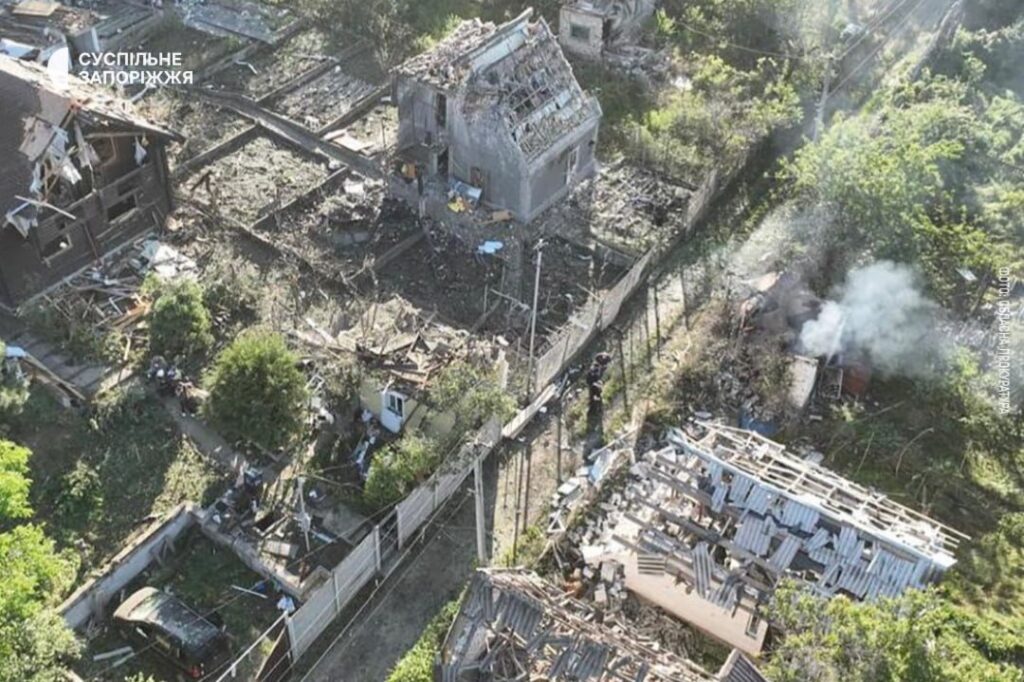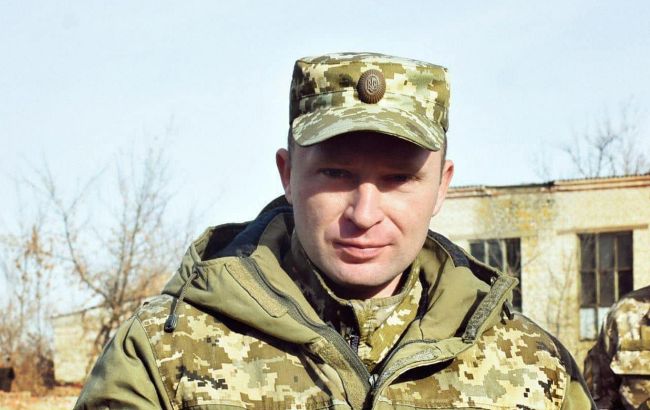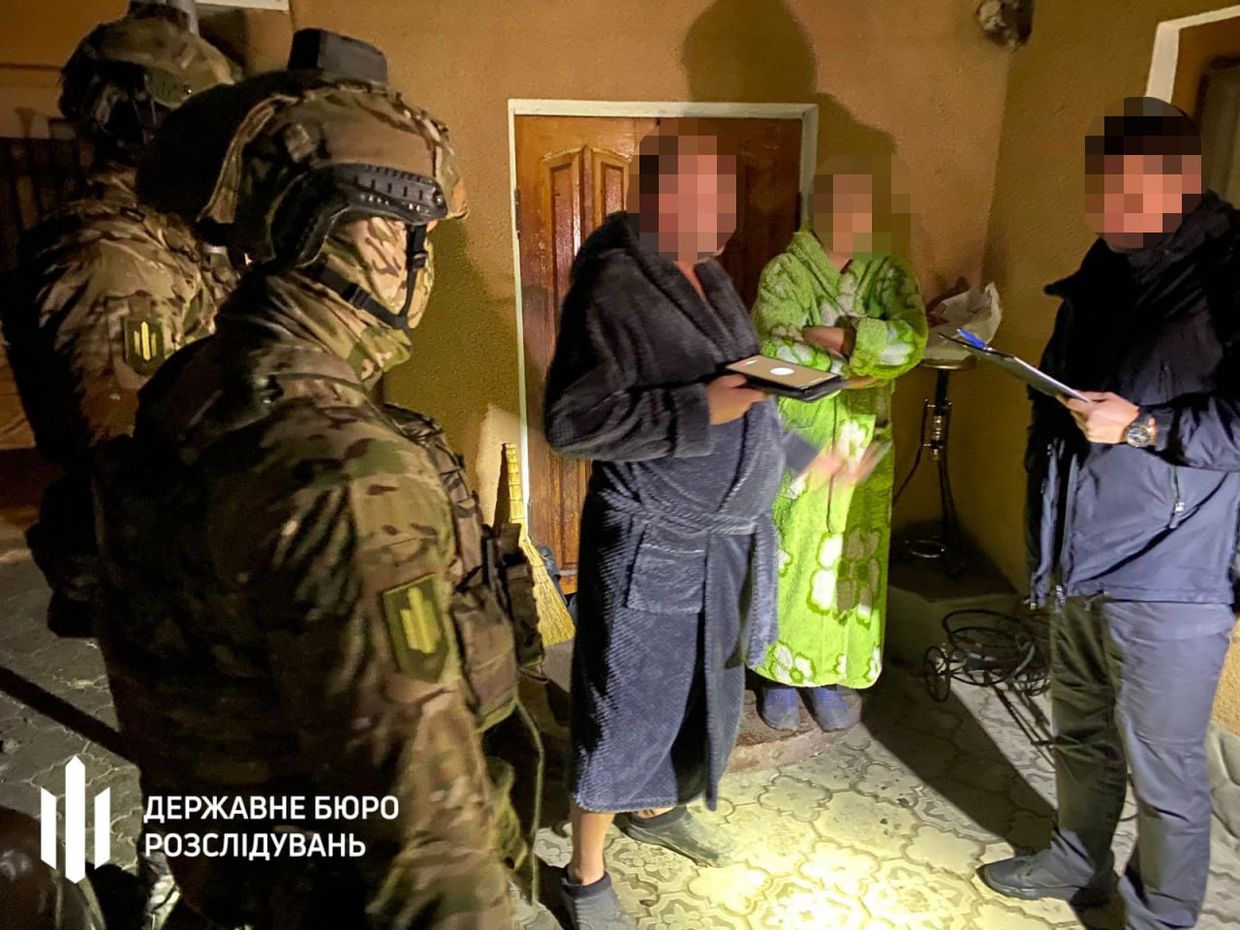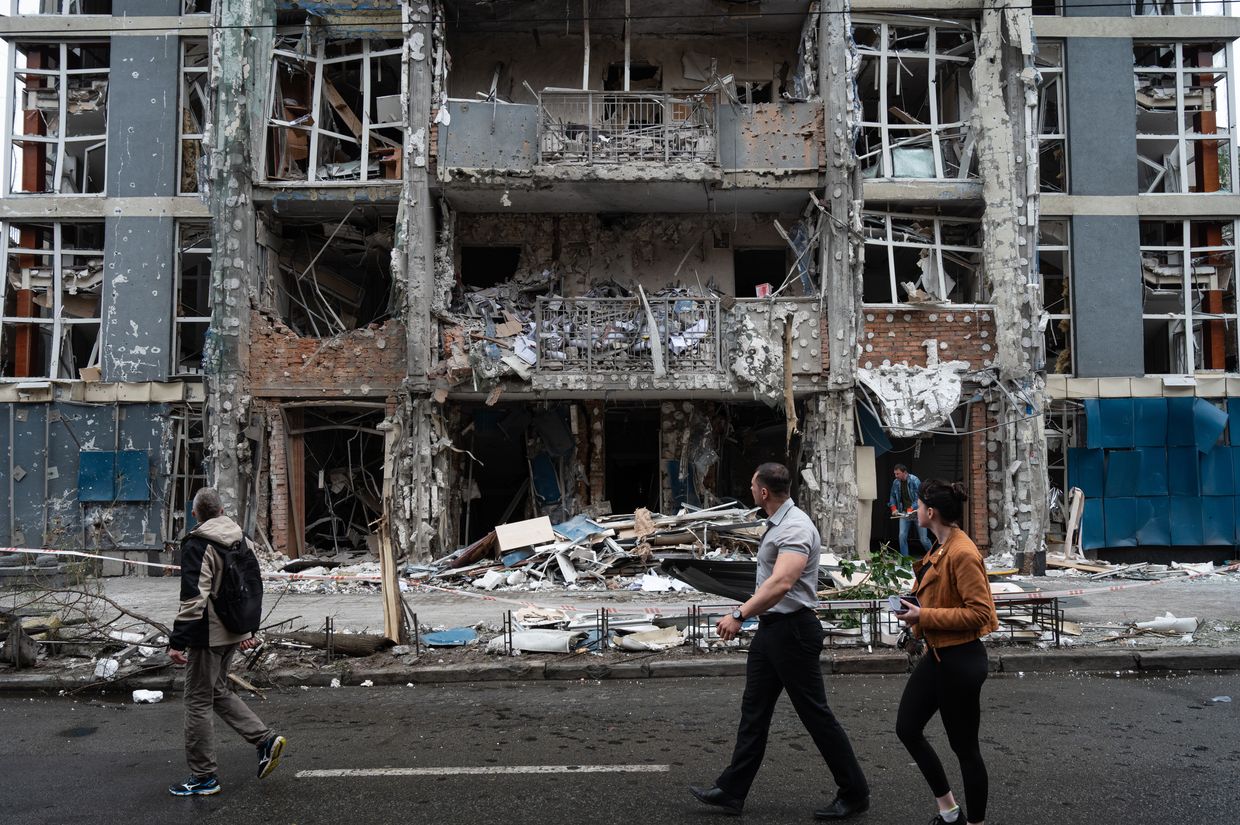Justice Dept. to Cut Gun-Sale Inspectors by Two-Thirds as It Moves to Downsize A.T.F.

© Desiree Rios for The New York Times


© Desiree Rios for The New York Times


© Eric Lee for The New York Times


© Joseph Eid/Agence France-Presse — Getty Images


© Joseph Eid/Agence France-Presse — Getty Images

© Eric Lee for The New York Times


© Philip Cheung for The New York Times


© Eric Lee/The New York Times


© Photographs by Eric Lee/The New York Times, Kenny Holston/The New York Times, Will Oliver/EPA, via Shutterstock


Ukrainian refugees — a 46-year-old mother Lilia and her six-year-old daughter Anna — were found dead with stab wounds after a deliberately set fire at their home in Haasrode, Belgium. The Leuven prosecutor’s office has opened a double murder investigation.
Emergency services responded to the blaze at approximately 9:30 a.m. on 6 June at a former rectory-turned shelter for refugees on Milsestraat. Firefighters brought the fire under control by 10:20 a.m. but discovered two bodies during their search of the first-floor apartment, according to VRT, Sudinfo, and La Libre.
The woman was pronounced dead at the scene, while paramedics attempted to resuscitate the child before she died from her injuries. Both victims had sustained stab wounds across their bodies, the prosecutor’s office confirmed Friday evening.
Fire experts determined the blaze was intentionally set, leading prosecutors to launch a formal investigation into double homicide. An autopsy is scheduled for 10 June to determine the exact cause of death.
The family had lived in Belgium for three years after fleeing Ukraine due to the war. The woman’s husband remains fighting on the front lines in Ukraine, while their 16-year-old son was at school during the incident and is now receiving care from authorities.
The building where the family lived is owned by the local church but rented by the Oud-Heverlee municipality to house Ukrainian refugees.
Acting mayor Francis Van Biesbroeck expressed the community’s grief, stating that “the death of a young child affects an entire community, and certainly also the school.” He praised the rapid response of emergency services and support staff.
Father Mykola Paliukh of the Leuven parish described the incident as “a tragedy,” noting how the family had “fled Ukraine because of the war and hoping to build a better life” before being “struck by such a tragedy.”
The investigation continues as authorities work to determine the circumstances surrounding the deaths and arson attack.


© Patrick Semansky/Associated Press


© Jason Andrew for The New York Times


© Bizuayehu Tesfaye/Las Vegas Review-Journal, via Associated Press


© Evening Standard/Hulton Archive, via Getty Images


Russia launched 479 aerial weapons, including seven missiles and hundreds of drones, on Ukraine overnight on 1 June 2025, marking the largest drone and attack since the full-scale invasion began, according to Ukraine’s Air Force. The drone attack injured four civilians, yet one of the missiles reportedly hit a military training facility, killing 12 soldiers and injuring dozens others.
Ukraine’s Air Force reported that between 19:30 on 31 May and the early hours of 1 June, Russian forces attacked with 472 Shahed-type strike UAVs and decoy drones from directions in Russia, including Millerovo, Shatalovo, Kursk, Oryol, Bryansk, and Primorsko-Akhtarsk.
Additionally, Russia launched three Iskander-M/KN-23 ballistic missiles from Kursk and Voronezh oblasts and four cruise missiles — both air- and ground-launched — including Kh-101 and Iskander-K types.
Air defense forces responded using aviation, anti-aircraft missile units, electronic warfare systems, drone units, and mobile fire groups.
As of 13:30, a total of 385 aerial threats were reportedly neutralized, including 210 Shahed-type UAVs and three Kh-101/Iskander-K cruise missiles. Of those, 213 were shot down by kinetic means, while 172 were either jammed or disappeared from radar due to electronic warfare.
The air strikes targeted Kyiv Oblast, Kharkiv Oblast, Sumy Oblast, Zhytomyr Oblast, Odesa Oblast, Donetsk Oblast, Dnipropetrovsk Oblast, and Zaporizhzhia Oblast. Strikes caused impacts in 18 separate locations, Air Force says.
Following a record 355-drone attack, Russia launches 60 drones—Ukraine intercepts most
In Kyiv Oblast, local authorities reported that 15 Russian drones were shot down. Ten detached houses were damaged in Bila Tserkva district, but no casualties were reported.
In Zaporizhzhia, according to the National Police, seven Shahed drone strikes and one missile hit the city and surrounding area between 04:06 and 04:33. Three civilians — two women and a man — were injured and received medical aid. Private homes and critical infrastructure were damaged. Zaporizhzhia Mayor’s Office reported emergency services boarded up windows in 13 homes and two apartment buildings.
A Zaporizhzhia resident named Serhii said his home, built over 10 years, was significantly damaged, Suspilne reported. He said something struck about 10 meters away, but he and his family hid behind a masonry stove, which saved their lives.

The Zaporizhzhia regional prosecutor’s office opened an investigation into a war crime under Article 438 of Ukraine’s Criminal Code.
In Odesa Oblast, Shahed drones struck Bilhorod-Dnistrovskyi district. Odesa Oblast Military Administration head Oleh Kiper confirmed private homes and a vacation facility were damaged. A fire broke out but was extinguished by emergency workers. No injuries or deaths were reported.
According to Kharkiv Oblast Military Administration head Oleh Syniehubov, 13 drones struck Izium, Lozova, and Kupiansk districts.
A 45-year-old woman in Lozova suffered acute stress, the State Emergency Service reported. Local authorities reported impacts on a school and a critical infrastructure site.
In Balakliia, seven strikes hit, damaging a civilian residential area and a factory.
A warehouse fire occurred in Izium. In Velykyi Burluk, a strike caused a fire on the second floor of an administrative building, damaging windows and a car. Power lines were also hit in Bunakove, Lozova community.
Russia’s massive missile and drone assault kills at least 12 civilians, injures 52, between two prisoner swaps
On 1 June, the Russian army launched a missile strike on a Ukrainian Ground Forces training unit in Dnipropetrovsk Oblast, according to Ukraine’s Ground Forces command. As of 12:50, 12 servicemen were confirmed dead and over 60 wounded.
The Ground Forces stated:
“No formations or mass gatherings of personnel were taking place. After the air raid alert was announced, most of the personnel were in shelters.”
Commander of Ukraine’s Ground Forces, General Mykhailo Drapatyi, announced his resignation:
“As commander, I failed to ensure full execution of my orders. I didn’t push hard enough, didn’t convince, didn’t change attitudes. That’s my responsibility.”
Ukrainian Ground Forces commander quits after training base attack kills 12 and injures 60 troops
Ground Forces spokesperson Vitalii Sarantsev told Suspilne the preliminary weapon used was an Iskander missile. He emphasized that any officials found guilty, regardless of past service, will be held accountable.


“An army where no one is held accountable for losses dies from within.” With these words, Commander of the Ukrainian Ground Forces, Mykhailo Drapatyi, has announced he is resigning after a Russian attack on the Kyiv forces’ military training base.
Drapatyi announced his decision via social media.
“This is a conscious step, driven by my personal sense of responsibility for the tragedy at the 239th training ground… This is my responsibility,” he wrote on Telegram.
The general emphasized that impunity and complicity are toxic for the army and admitted that his efforts to change the system were not enough.
“We have no right to live in a system that doesn’t learn… Without personal responsibility, there is no victory,” he claimed.
Drapatyi said he had initiated a full review of the incident, including the commanders’ actions, the condition of the shelters, and the effectiveness of the alert system.
Ukraine’s military command reported that a commission and internal investigation had been launched into the strike, and promised that those responsible would be held strictly accountable.
During the war, Mykhailo Drapatyi rose through the ranks from battalion commander to Deputy Chief of the General Staff. In his previous roles, Drapatyi was responsible for planning military operations.
From the early days of Russia’s aggression in 2014, he led the 2nd Mechanized Battalion of the 72nd Brigade, which took part in the liberation of Mariupol in May of that year.


Ukraine's State Bureau of Investigation has completed its probe into Colonel Oleh Poberezhniuk, commander of the 211th Pontoon Bridge Brigade, accusing him of knowingly allowing torture and abuse of soldiers under his command to continue unchecked, the officials said on May 29.
According to the official statement, investigators determined that from February to July 2024, Poberezhniuk was aware of repeated instances of torture and cruel treatment carried out by a subordinate officer but failed to take any action. The officer in question, Senior Lieutenant Vladyslav Pastukh, allegedly beat, humiliated, and tortured fellow servicemen.
Pastukh, who is no longer with the unit, is the son of the brigade's chief of staff and a close associate of Poberezhniuk. Authorities say this personal connection likely influenced the commander's decision to conceal the crimes and avoid reporting them to law enforcement.
Pastukh was charged with abusing his authority in December 2024 after allegedly beating, humiliating, and torturing fellow service members. The commander faces up to 12 years in prison if convicted.
"Instead of protecting the rights of his subordinates, the commander effectively became complicit through criminal inaction, enabling further abuse," the bureau said. Such actions, it added, not only violate the law but also pose a serious threat to the internal discipline of Ukraine's Armed Forces during wartime.
Poberezhniuk has been charged with inaction of military authority under martial law, a serious offense under Ukraine's Criminal Code, carrying a sentence of seven to 10 years in prison. The case has been forwarded to Poberezhniuk and his legal team for review before being submitted to court. The Prosecutor General's Office is overseeing the case.
The charges follow a December 2023 Ukrainska Pravda investigation that revealed a pattern of systemic abuse within the brigade, including beatings, extortion, and reports of a soldier being tied to a wooden cross. The report also highlighted widespread nepotism, with multiple family members serving within the same unit.
Following public outcry, Commander-in-Chief Oleksandr Syrskyi suspended Poberezhniuk, and Defense Minister Rustem Umerov ordered an internal investigation.
 The Kyiv IndependentAndrea Januta
The Kyiv IndependentAndrea Januta